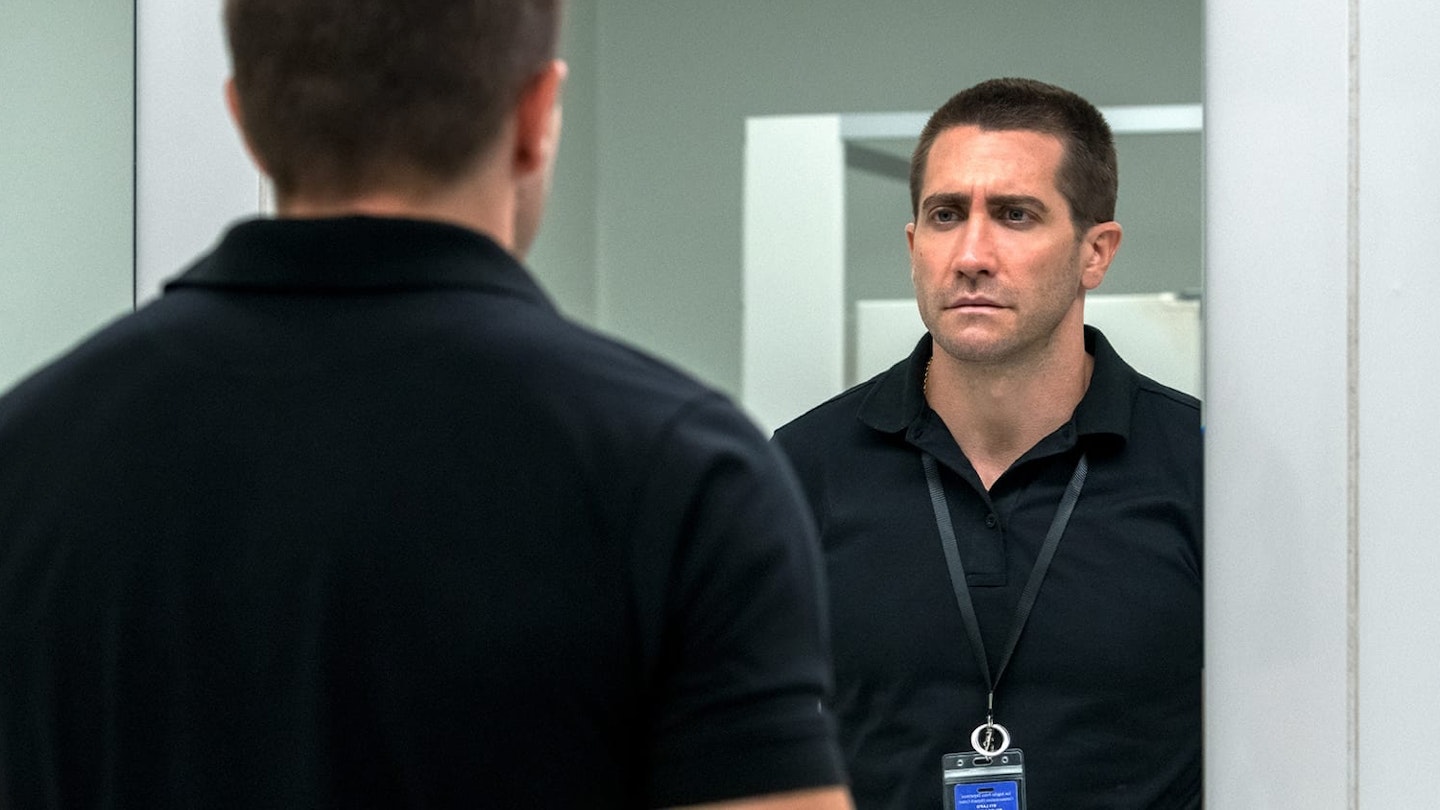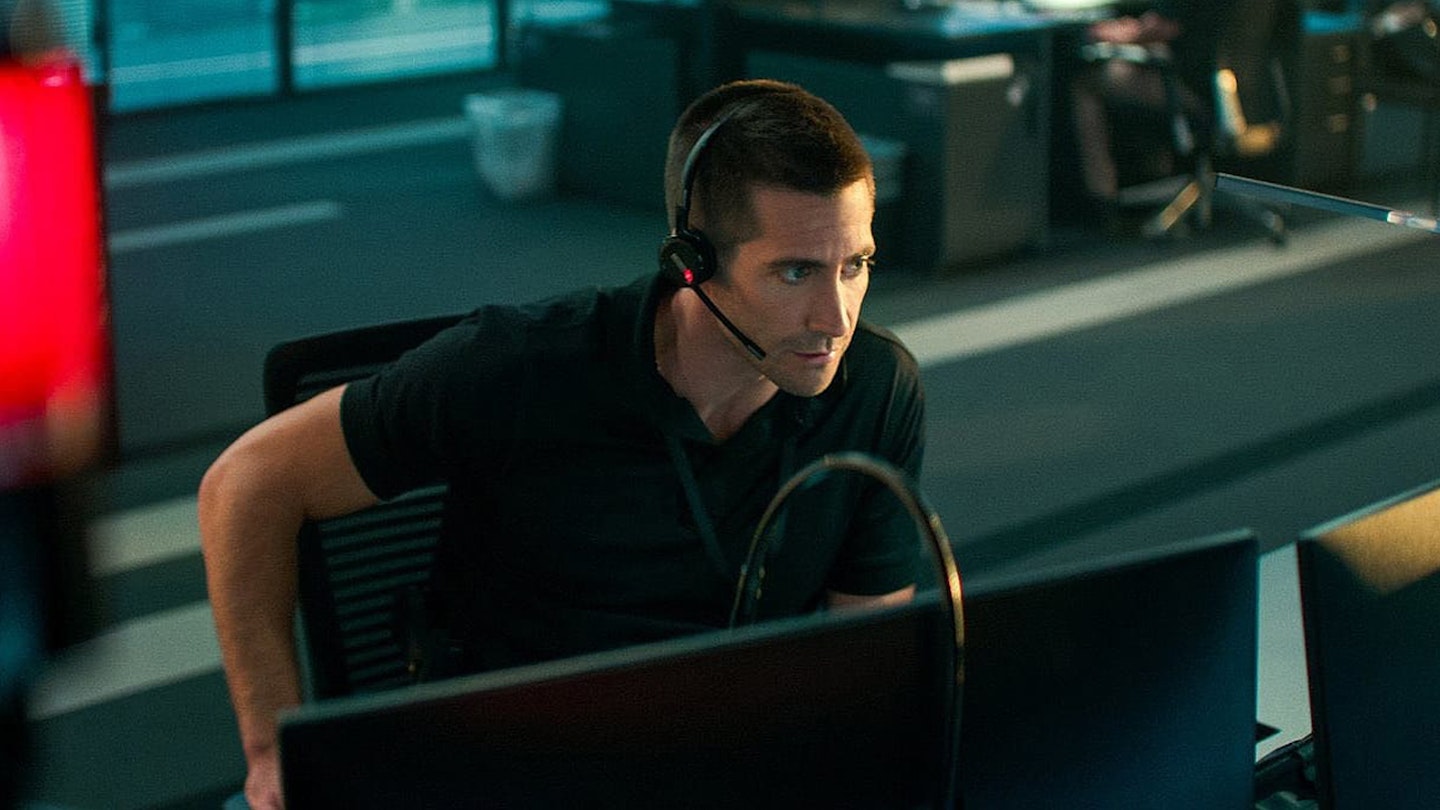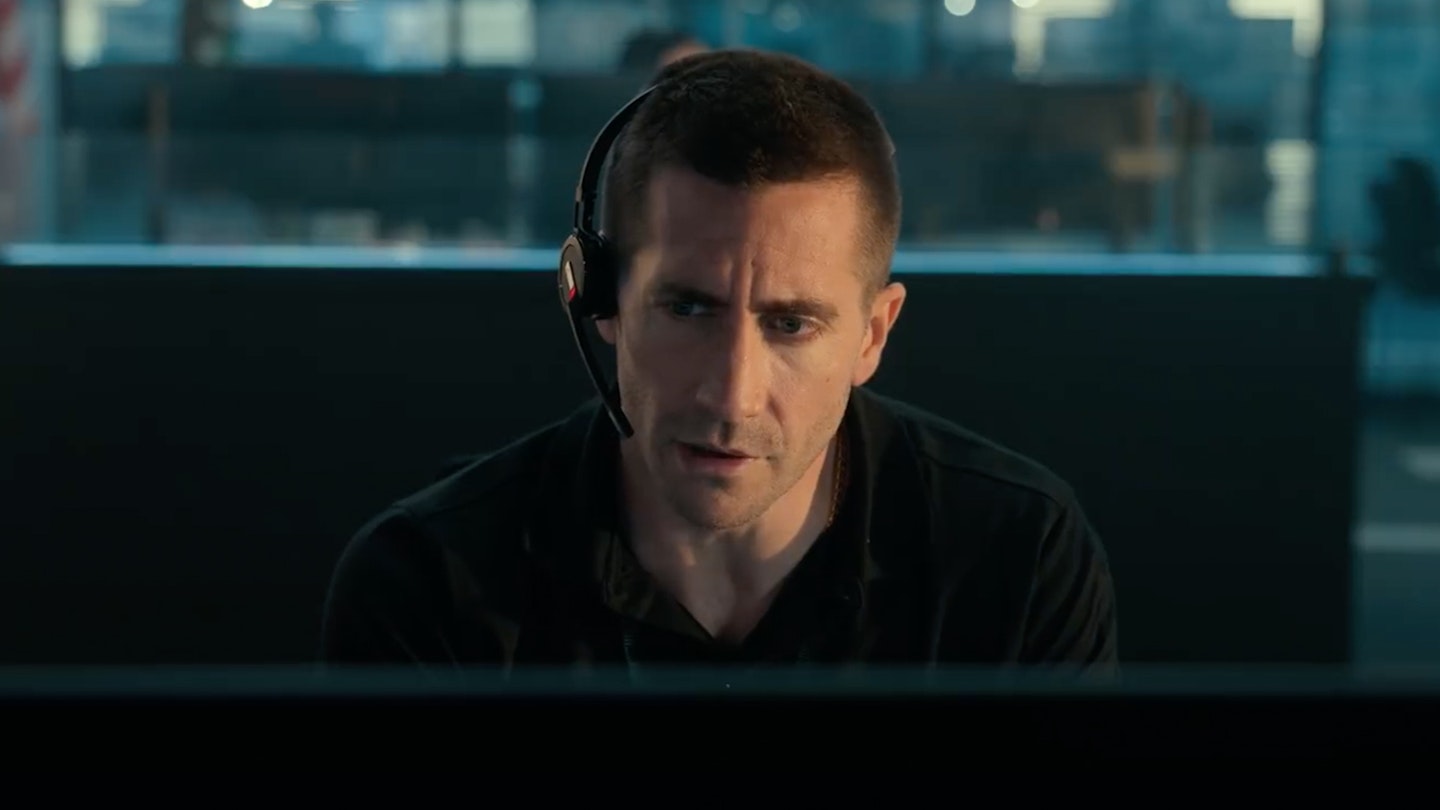When it comes to movies about policing, Jake Gyllenhaal and Antoine Fuqua have excellent form. Gyllenhaal has the terrific buddy cop action thriller End Of Watch on his résumé, while Fuqua will surely have “from the director of Training Day” attached to all his future work. Like the latter, The Guilty – a remake of the 2018 Oscar-shortlisted Danish drama of the same name – puts its focus on a flawed cop. And while it hews close to the original by replicating tense single-set thrills, there’s just enough freshness, along with a terrific lead performance, to justify this Americanised version.

Even before the fateful phone call that forms its premise, The Guilty does well to put us into Joe Baylor’s (Gyllenhaal) headspace. Between painful headaches, a separation from his family, and an undefined controversy that reporters won’t stop calling him about, it’s clear that he’s already having a terrible, horrible, no good, very bad day. It gets exponentially worse when he picks up a call from distressed Emily Lighton (Riley Keough), who claims that she has been abducted by her husband Henry (Peter Sarsgaard). Before long, Baylor is vowing that he’ll save Emily and her six-year-old daughter, even though he only knows pieces of the full picture.
As the two narratives converge, Gyllenhaal raises his game and it’s gripping to watch.
The film is at its best when Baylor is on one emotionally charged call after another, as Nic Pizzolatto’s screenplay slowly sprinkles in important details while ratcheting up the urgency of the situation. In this regard, having the film take place against the backdrop of a raging LA fire that has cops spread thin is one of many smart decisions. Another is the commentary on American policing – Baylor has been demoted from street LAPD cop to call dispatcher, and we eventually find out why – which resonates without feeling overemphasised.
None of this would work without a compelling lead performer at The Guilty’s centre, and Gyllenhaal delivers. He fully commits to Baylor’s short-tempered nature from the outset, but there is an undercurrent of desperation that grows as we learn more about his personal situation and Emily’s case. As those two narratives converge, so too does Gyllenhaal raise his game, and it’s rarely less than gripping to watch.
In fact, no performances feel like they’re phoned in. Keough gives a superb vocal turn as Emily: it’s a role that demands the actor be in a state of heightened emotional distress for the entire movie, but she adds subtle yet effective variations on that throughout to keep things interesting. Similar could be said for Sarsgaard’s Henry and Eli Goree as Rick, Baylor’s LAPD partner, and the rest of the impressive cast who all do much to paint a vivid picture of what we never see.

